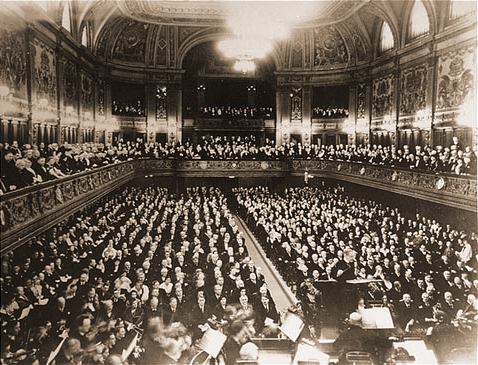Waugh’s inability to amputate the image of the exceeding greatness of the German kulturnation from the barbarism it could thus deport itself to was by no means uncharacteristic of his age, nor, apparently, ours. Consider the New York Times article in which its author is too incapacitated in his fascination with a self-described white nationalist’ highbrow cultural tastes and lifestyle (he watches Seinfeld!) to aptly represent the danger that his subject poses. The New York Times’ decision to publish it—if the institution is to be taken as a yardstick for enlightened opinion—suggests that the intellectual class, or at least a fraction of it, is no longer able to imagine, along with George Steiner, that we “now know that a man can read Goethe or Rilke in the evening, that he can play Bach and Schubert, and go to his day’s work at Auschwitz in the morning.”
It’s not incidental that no other killing field can compete with symbolic resonance of the Nazis’ concentration camps in the postwar moral economy. For Tony Judt, National Socialism’s ultimate demonic status serves “a rather distinctive reminder—or a distinctive warning—of what happens when the patina cracks . . . civil society, public life, open political systems and the forms of behavior they encourage and on which they depend, are all paper-thin constructions. They are all more fragile than it suits us to believe.” Judt here is arguing in an idiosyncratically Benjaminian spirit in tangible terms. That which appears as progress—and that cultivation which Fauccet and Waugh are disarmed by in fascists’ tastes contra their monstrous beliefs—is in fact the storm that drives the Angel of History “irresistibly into the future, to which his back is turned, while the rubble-heap before him grows sky-high.”
The Nazis’ uniqueness was in their ability to successfully conceal their true nature behind the sheen of Progress to a public easily astonished by Speer’s grandiose architecture and august Wagner symphonies. At any rate, we came to see that our prewar narcissistic obsession with the modern, civilized and sophisticated causes one to be too disoriented to suspect that the civilizing mission may perhaps be a pretence for something sinister—the bread and butter of colonialism’s stated historic mission and moral valence. Hitler’s crimes occurred in the house next door. Not against faceless peasants in the Congo or the Soviet Union, but against a key, though problematic, component of Western civilization: European Jewry. This time, as Philip Lopate pointed out, it was “gentle, scholarly, middle-class, civilized people who are then packed into cattle cars . . . images of Jews lined up in their fedoras and overcoats tug at our hearts precisely because we see them as individuals.” Civilization was not a guarantee against barbarism, neither at home nor abroad.
This somewhat commonplace realization and its impingement on Europeans’ conscience in the post-war era necessitated the popularization of that now-familiar epoch-defining Herculean-pledge—“Never Again.” Lest it loses its moral valence, it had to be universalized. Atrocities at the edges of Europe and beyond were rendered more or less visible. The entire affair of memorializing genocide—be it that of the Armenian genocide or Stalin’s Gulags—wasn’t a reality before the aftermath of the Shoah. When Europeans had learned that, in Steiner’s words, “the high places of literacy, of philosophy, of artistic expression, became the setting for Belsen,” the crimes their states were committing against Non-Europeans were too unbearable to imagine. As Jeremy Rifkin noted, the developed postwar societies saw “the greatest single empathic surge in history . . . When we say to civilize, we mean to empathize.” This is a key paradigmatic shift which has facilitated de-colonization and the ascent of human rights discourse in the West. The Holocaust’s capacity to solidify this paradigmatic shift, for Judt, was in its ability to capture “something for which we lack a modern vocabulary, but which lies at the heart of our recent past and thus our present inheritance. That something is the idea of evil.”
That something seems to be an anachronism today and it can be attested to in the nation’s “paper of record.”

The quote in the story is from Sir Evelyn Wrench, not the writer Evelyn Waugh. Wrench was at one time owner of The Spectator magazine, and the quote appeared in his book “I Loved Germany” (London: Michael Joseph, 1940).